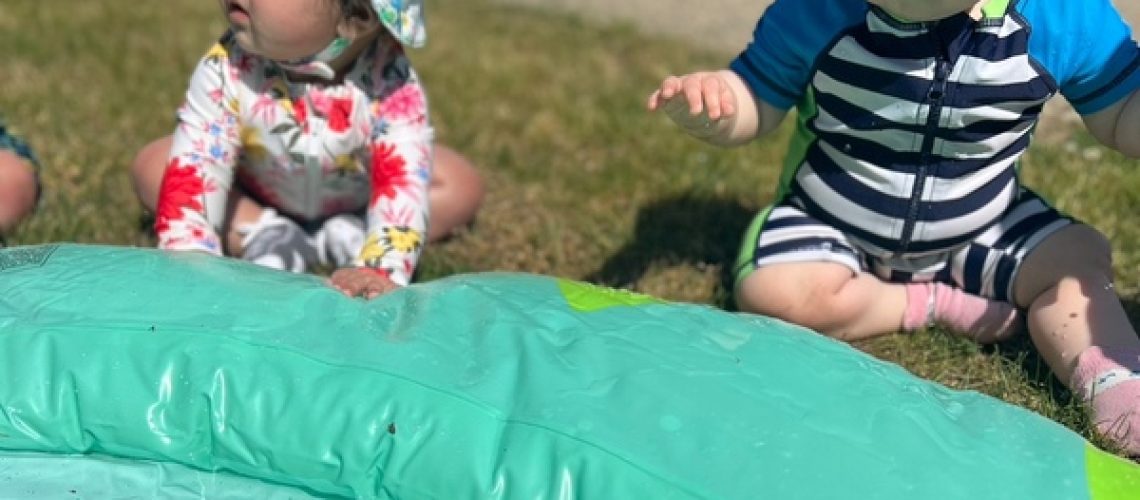Children enhance their gross motor skills, coordination and physical fitness through lifting, pouring, carrying, running and splashing, while actions such as squeezing help to develop the small muscles in a child’s hands. Let’s take a look at the five benefits of water play in more detail…
DEVELOPS HAND-EYE COORDINATION
Water play is a great activity for developing children’s hand-eye coordination as they learn to pour, squeeze, stir and even paint with water. For example, through pouring water from one bucket to another, or learning how to control the direction and size of a splash, children are improving their sense of accuracy and control.
INTRODUCES MATH AND SCIENTIFIC CONCEPTS
Water is great for demonstrating math and scientific concepts, such as volume and weight. How much water do you think could fit in this bucket? Can we measure it? What do you think will happen if we drop this heavy object into the bucket? Water play can also be used to develop children’s literacy and numeracy, such as counting how many buckets of water it takes to fill a tub, or using water and a brush to write and draw.
ENHANCES CONCENTRATION AND FOCUS
When children are engaged in water play, they tend to lose themselves in the activity and can spend long periods of time exploring and playing. This can encourage children to focus, and any activity that holds a child’s attention for a long length of time will contribute to increasing their attention span and ability to concentrate later in life.
DEVELOPS FINE-MOTOR SKILLS AND SENSORY EXPLORATION
Water play activities help to develop and strengthen children’s gross and fine motor skills. Children enhance their gross motor skills, coordination and physical fitness through lifting, pouring, carrying, running and splashing, while actions such as squeezing help t develop the small muscles in a child’s hands.
BUILDS SOCIAL AND COMMUNICATIONS SKILLS
When water play becomes a group activity, it encourages children to engage in social and cooperative play. For example, children may embark on a mission to fill a large tub with water from the water pump, or build a moat in the sandpit, or take turns jumping into the water to see who can make the biggest splash. In these play experiences, every child has a role to play and contributes to the ultimate goal.

